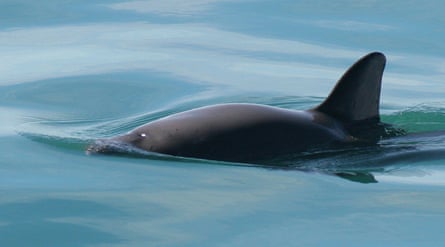Groups of animal species are vanishing at a rate 35 times higher than average due to human activity, according to researchers, who say it is further evidence that a sixth mass extinction in Earth’s history is under way and accelerating.
Scientists analysing the rate at which closely related animal species have gone extinct in the past 500 years have found they would have taken 18,000 years to vanish in the absence of humans, and the rate at which they are being lost is increasing.
The study, published in the journal Proceedings of the National Academy of Sciences, found that at least 73 mammal, bird, reptile and amphibian species groupings have gone extinct since 1500. If trends had followed the average pre-human impact rates of extinction, just two would have been expected to disappear, they estimated. Those lost include the elephant birds of Madagascar, moa from New Zealand and Hawaiian moho honeyeaters.
Due to habitat destruction, the climate crisis and the illegal trade in wildlife, losses are projected to accelerate in the coming years. In the worst-case scenario – that all currently endangered species groups disappear by the end of the century – the rate would be 354 times above the average for the past million years.
“The current generic extinction rates are 35 times higher than expected background rates prevailing in the last million years under the absence of human impacts,” the report said.
The new research focuses on “genera”, the plural of “genus”. Groups of species are known as a genus, the taxonomic classification above species. For example, horses and zebras are in the same genus, as are dogs, wolves and coyotes. The authors expected genera to have a lower rate of extinction than individual species. They found them to be similar.
Previous research on fossil records has estimated that before the impact of humans, nearly one in 10,000 genera would disappear every century. As there are about 5,400 known vertebrate genera, excluding fishes, one genus would be expected to become extinct every 250 years if those rates held, according to the paper.
The authors, Prof Gerardo Ceballos and Prof Paul Ehrlich, have previously found that species are becoming extinct on a scale akin to the event that wiped out the dinosaurs, and warn that the loss is a threat to the persistence of human civilisation.
While the claim that a sixth mass extinction is under way is disputed by some scientists, a 2019 UN assessment of the health of the planet found 1 million species were at risk of vanishing due to human pressures on the environment.
A vaquita porpoise, a critically endangered species in the Pacific Ocean near Mexico. Photograph: Paula Olson/AP
“Such mutilation of the tree of life and the resulting loss of ecosystem services provided by biodiversity to humanity is a serious threat to the stability of civilisation. Immediate political, economic and social efforts of an unprecedented scale are essential if we are to prevent these extinctions and their societal impacts,” the study found.
Prof Ceballos, of the Universidad Nacional Autónoma de México, who led the research, told the Guardian that the results were worse than he expected, but said there was still time to act.
“By losing all these genera, we are losing the foundations of the planet to have life in general and human life in particular. If you have a wall made of bricks, if you lose some, it won’t collapse but it won’t be as strong. If you lose many bricks, eventually it will collapse. The combination of the gases in the atmosphere that allows us to have life on the planet depends on plants, animals and organisms. People say that we are alarmist by saying that we expect a collapse. We are alarmist because we are alarmed,” he said.
“As dramatic as the results are, what is important to mention is that we still have time. The window of opportunity is closing rapidly. There is hope but we need to act quickly,” he added.
Ben Garrod, a professor of evolutionary biology and science engagement at the University of East Anglia, who was not a co-author, said the study was a stark warning.
“The very framework to which all nature – including our own species – adheres is in serious jeopardy. With extinction rates from a whole range of species and species groups being so much higher than we’d typically expect, it’s hard to see why global governments, leading businesses and the general public are not doing everything possible to mitigate this devastating loss,” he said.
“Extinction is irreversible,” he added. “From a more human-centric perspective, it’s almost impossible to predict which of these losses will have a significant impact on our own species. It’s an existential gamble we should think very hard about before taking.”
Find more age of extinction coverage here, and follow biodiversity reporters Phoebe Weston and Patrick Greenfield on X for all the latest news and features
www.theguardian.com
https://www.theguardian.com/environment/2023/sep/19/mutilating-the-tree-of-life-wildlife-loss-accelerating-scientists-warn













